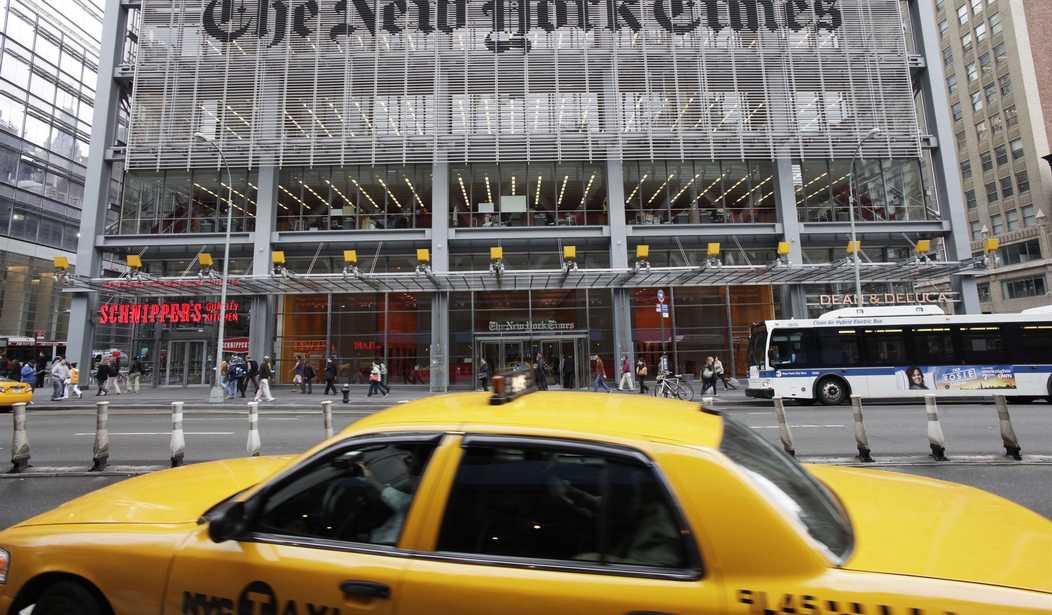It is a crime for reporters to pay for leaks. Reporters can use information volunteered by whistleblowers, but bribes are a different story. And it appears to be happening with some regularity. The recent Department of Justice Inspector General’s report warns: “We identified instances where FBI employees improperly received benefits from reporters, including tickets to sporting events, golfing outings, drinks and meals, and admittance to nonpublic social events.” The report finds that such enticements likely led agents to leak information.
So far, the media hasn't acknowledged this possible criminal activity by reporters. The problem goes beyond ethical violations, and it has serious implications. If reporters can legally bribe government officials, who's to say that the reporters won't also collude with foreign governments?
On Monday, The New York Times admitted in an article that one of its reporters had an affair with James Wolfe, the former security director for the Senate Intelligence Committee. The reporter, Ali Watkins, is 32 years his junior. When she stopped seeing Wolfe, she started dating another intelligence committee staff member. The New York Times is investigating, but she likely owes her swift rise as a star reporter to inducing men to give her classified documents.
It doesn’t help Watkins’ case that in 2013, she told her Twitter followers how much she “wanted to be Zoe Barnes.” Barnes, a fictional reporter in the House of Cards TV series, sleeps with a confidential source in exchange for information that she uses in her news stories.
James Wolfe has been arrested, and the Inspector General indicated that charges may be brought against the FBI agents who leaked information to reporters. But no one seems to be suggesting going after the reporters, who are themselves criminally liable for bribing government officials.
So far nothing has happened to Ali Watkins, other than fellow reporters questioning her ethics for possibly sleeping her way to career-advancing stories.
Recommended
To get convictions for the FBI agents, prosecutors just have to show that they leaked information. The FBI policy, the IG report notes, is “clear and unambiguous.”
It may be more difficult to actually prove that the reporters’ bribes caused the leaks. Prosecutors would need to show that reporters engaged in a direct quid-pro-quo, and weren't just giving gifts to be nice to friends.
But sometimes it shouldn’t be too hard to make a case. Did the reporter write off the gift as a business expense? Did the newspaper cover the cost? Were tickets and similar gifts given to people who weren’t sources for stories?
The Society of Professional Journalists says that paying for information “threatens to corrupt journalism.” “Checkbook journalism,” the society suggests, may make a publication less than impartial in judging the accuracy of information. Sources may provide false information just to receive the bribes.
The Columbia Journalism Review, self-billed as “the voice of journalism,” declares, “the dominant news gathering culture [in the United States] has considered it taboo.” It warns of the “slippery slope” that damaged UK journalism.
If the government doesn’t punish the reporters who bribed the agents, will media outlets? These reporters ought to lose not only their jobs, but perhaps their careers.
The selective enforcement of the law may not just be reporters versus agents. So far the big wigs seem immune. Former FBI head James Comey and his number two Andrew McCabe have clearly violated agency rules by leaking to reporters, and in Comey’s case his offenses have been known for a year, but they have yet to face any charges.
Let’s hope that it isn’t just the low-ranking agents who suffer the consequences. Reporters who offer bribes and FBI leaders who turn a blind eye are just as responsible.
* John Lott is the president of the Crime Prevention Research Center and the author most recently of “The War on Guns.”

























Join the conversation as a VIP Member